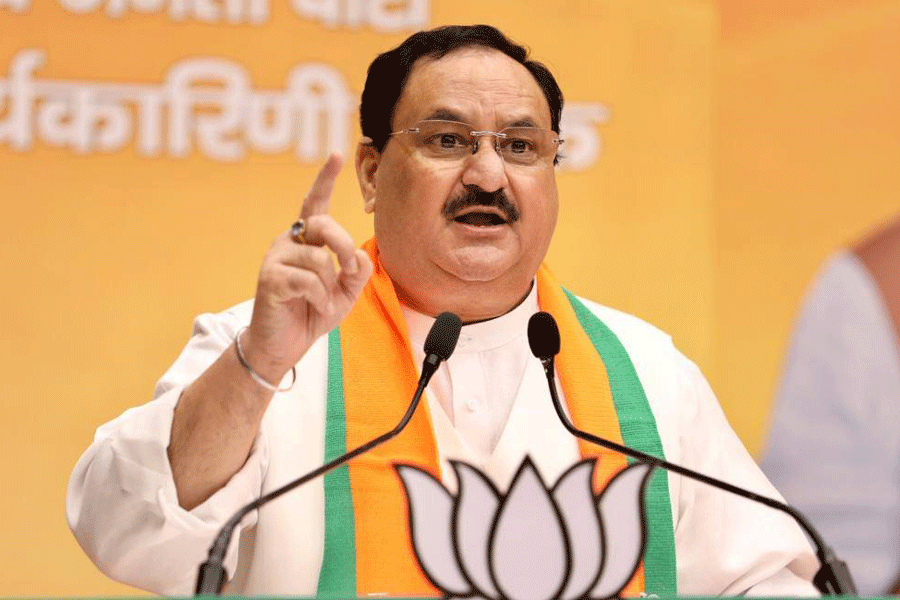The Opposition on Thursday said pushing the implementation of political reservation for women to a period beyond 2024 showed lack of sincerity for the cause and described it as a strategy to get votes in the upcoming general election.
Law minister Arjun Ram Meghwal introduced the Nari Shakti Vandan Vidheyak amendment bill in the Upper House on Thursday, a day after the proposed law that seeks to provide 33 per cent reservation for women in the Lok Sabha and the Assemblies was passed in the Lower House. The bill cleared the Rajya Sabha as well.
BJP leader J.P. Nadda said if the bill was passed now, women would get the benefits in the 2029 Lok Sabha polls. “There is a demand for implementing it now. There are certain constitutional procedures. There are issues such as which constituencies the reservation will apply to and where it will not. Who will decide this? It will be decided by a quasi-judicial body through public hearings after the census. If the bill is passed today, women will be elected in 2029.” The Modi government has tied the proposed law to the much-delayed census and a delimitation exercise in 2026.
All parties supported the bill but demanded that the law be implemented from the 2024 parliamentary polls.
Congress MP Ranjita Ranjan questioned the sincerity of using the word “vandan” (worship and respect) in the bill. She cited the instance of police action on protesting women wrestlers at Jantar Mantar and the atrocities on women in Manipur. “We have seen your vandana at Janatar Mantar and Manipur. You speak about nari shakti but you did not invite President Droupadi Murmu to the inauguration of the new Parliament building,” Ranjan said.
She said if the government was sincere about increasing women’s representation, it would not have waited for nine-and-a-half years. The BJP’s election manifesto in 2014 had promised to enact a law for women’s reservation.
Sandeep Pathak of the AAP said the fate of the law was uncertain since there was no clarity on when it would come into force. “What great parameters are going to come out of the census and delimitation that the implementation of the law will have to wait? The intention of the government is to take credit but not implement it,” he said.
RJD parliamentarian Manoj Jha said the government should conduct a socio-economic caste census to get full data on OBCs. He demanded a 50 per cent quota for women.
CPM’s Elamaram Kareem, CPI’s Binoy Viswam and Congress’s K.C. Venugopal said the government had brought the bill because of political compulsions after the BJP lost elections in Himachal Pradesh and Karnataka.
Venugopal said BJP leaders including L.K. Advani had opposed the bill brought by the Rajiv Gandhi government to give reservation to women in panchayats and municipalities. Venugopal said the RSS never gave respect to women.
Viswam said the RSS followed the Manu Smriti, the Hindu scripture that codified the caste order, denied education to women and backward castes and did not consider women as equals.
Trinamul MP Derek O’Brien questioned the reasons for keeping the agenda of the special session a secret for several days. “When will the government learn that this is parliamentary democracy, not an army commando operation? Why was the agenda of the special session not disclosed? Such secrecy hurts democracy,” he said.
Derek said that out of the 16 states where the BJP and its allies were in power, none had a woman chief minister.
DMK leader R. Girirajan said India was the only country that had not conducted the decadal census.










